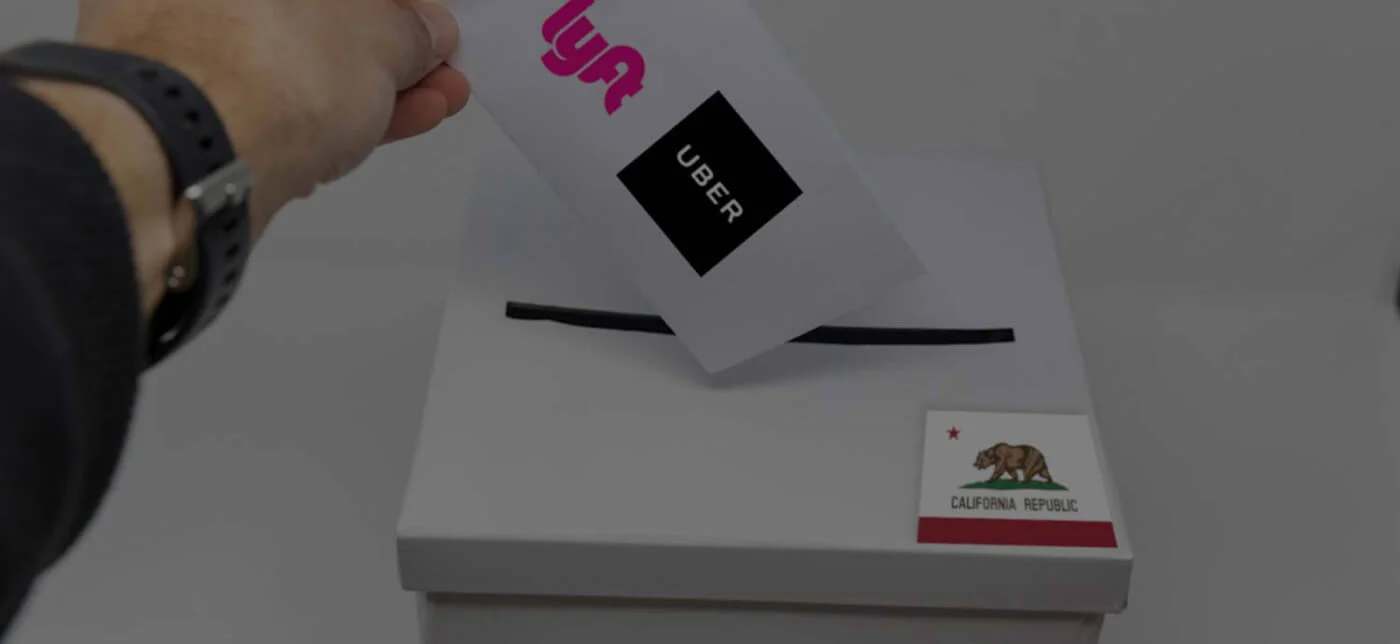Keep pace with the rapidly evolving fintech industry by subscribing to the BIGcast Network. Get weekly insights from industry leaders John Best and Glen Sarvady, delivered straight to your preferred podcast platform. Join our community and stay informed about the latest trends shaping the credit union industry. Subscribe today and ensure you’re always ahead of the curve.

Who Sets the Rules for the Gig Economy?
The gig economy is driving one of the greatest labor market transformations in generations. Such shifts rarely occur without havoc and discomfort- which is precisely what we’re seeing today. On November 3 California residents voted on Proposition 22, a ballot initiative designed to reset the rules governing drivers for app-based services like Uber and DoorDash. The story is already compelling, and we’re nowhere near the final chapter.
The stage was set in 2019 when the California Assembly passed a bill (AB5) classifying more workers as employees rather than independent contractors- providing them with minimum wage and other workplace protections, and creating additional employer costs in the process.
Uber and Lyft saw this law as a grave threat to their business model, given their heavy reliance on independent contractor drivers to fuel their operations. They found a workaround, however, in California’s unusually inclusive ballot initiative process. They banded together with food delivery services like Postmates and Instacart to submit Proposition 22, which would exempt app-based drivers from being treated as employees.
Proposition 22 offered a limited set of protections for drivers in place of typical employee safeguards. It provides a health insurance stipend for those working a certain number of hours, and guarantees earnings at a rate 20% above the minimum wage. For perspective, California law already includes an exemption for contractors making at least double the minimum wage. There are also existing carve-outs for over 20 “old economy” professions such as real estate agents, lawyers and commercial fishermen.
The ride/delivery app companies spent a combined $200 million advocating for Prop 22’s passage- ten times the amount of the “No” forces- making it easily the most expensive ballot measure in state history (the prior record was just over $150 million). This sum funded a heavy dose of TV ads, which positioned the vote as a referendum on securing workers’ rights and driver choice.
The tech companies were joined on the Yes side by the California Republican Party, Mothers Against Drunk Driving, most Chambers of Commerce, and the National Taxpayers Union. Those lending their names to a No vote included the state Democratic Party, most labor unions, the ACLU, the state’s insurance commissioner, and notably both Joe Biden and Kamala Harris.
My informal polling found many people ill-informed on the underlying details- not surprising given Californians’ need to research twelve propositions on the ballot. For instance, several thought the entire independent contractor model was at stake (false- wording was tailored specifically to app-based drivers); others believed it would improve safety (protections were actually a downgrade from existing law).
I suspected the growing backlash against Big Tech might give the “No” side an edge. Either I was wrong or the firms’ $200 million war chest more than enough to offset any such sentiment- the proposition passed easily with over 58% of the vote. I find the regional breakdown to be fascinating:
- The counties comprising Silicon Valley (the “belly of the beast”) essentially fought to a 50/50 draw. San Francisco itself voted it down 60/40.
- More conservative Southern California stretches (Orange, San Bernardino and San Diego Counties) voted nearly two-thirds in favor
- Los Angeles- easily the largest county- voted Yes by a 55/45 margin
Emboldened by their victory, Uber/Lyft/DoorDash etc. may now take their template to other states, although few offer similar pathways to a public referendum. Others have expressed discomfort with the ability for corporations to write their own legislation and win support through an expensive media campaign. In most states this will become more of a lawmaker lobbying exercise, with its own set of unsavory factors.
Hopefully we can all agree that many existing laws and regulations are ill suited for new models like the gig economy. Think of AB5 and Proposition 22 as initial steps in the painful, messy and necessary process of establishing the rules of engagement for modern business models. Much like financial regulation it can be fought out in each of 50 states, or addressed with a single national law.
Whether temporary or permanent, these outcomes also give rise to an array of worker financial needs credit unions should stand ready to address. Either way, this story is certainly far from over.
